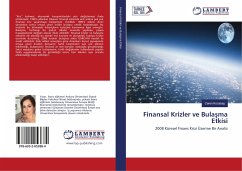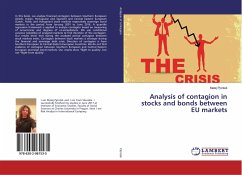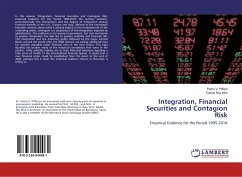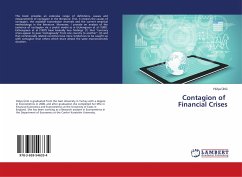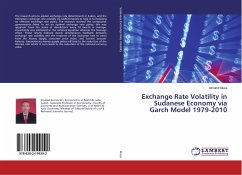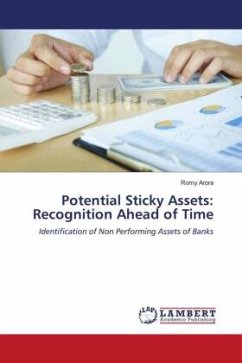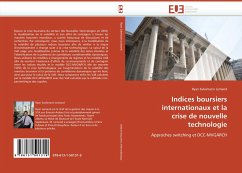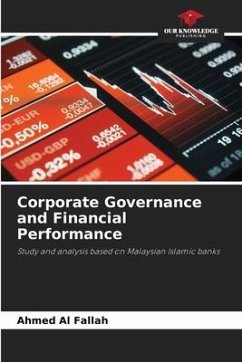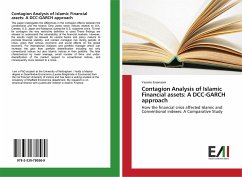
Contagion Analysis of Islamic Financial assets: A DCC-GARCH approach
How the financial crisis affected Islamic and Conventional indexes: A Comparative Study
Versandkostenfrei!
Versandfertig in 6-10 Tagen
24,99 €
inkl. MwSt.

PAYBACK Punkte
12 °P sammeln!
This paper investigates the differences in the contagion effects between the conventional and the Islamic Dow Jones stock indices relative to U.K, Canada, U.S, Japan and Malaysia, during the U.S. subprime crisis. To test for contagion the very restrictive definition is used. These findings are relevant to understand the vulnerability of the financial markets. However, the results might be relevant for central banks and policy makers to promote financial stability, and contain contagion risk during periods of crisis, given their serious economic and social effects on the global economy. For int...
This paper investigates the differences in the contagion effects between the conventional and the Islamic Dow Jones stock indices relative to U.K, Canada, U.S, Japan and Malaysia, during the U.S. subprime crisis. To test for contagion the very restrictive definition is used. These findings are relevant to understand the vulnerability of the financial markets. However, the results might be relevant for central banks and policy makers to promote financial stability, and contain contagion risk during periods of crisis, given their serious economic and social effects on the global economy. For international investors and portfolio manager which can increase the gain from portfolio diversification including not only conventional indices but also Islamic indices in their portfolio. The later characterized by lower leverage, small number of firms and under-diversification of the market respect to conventional indices, and consequently more resilient to a crisis.



